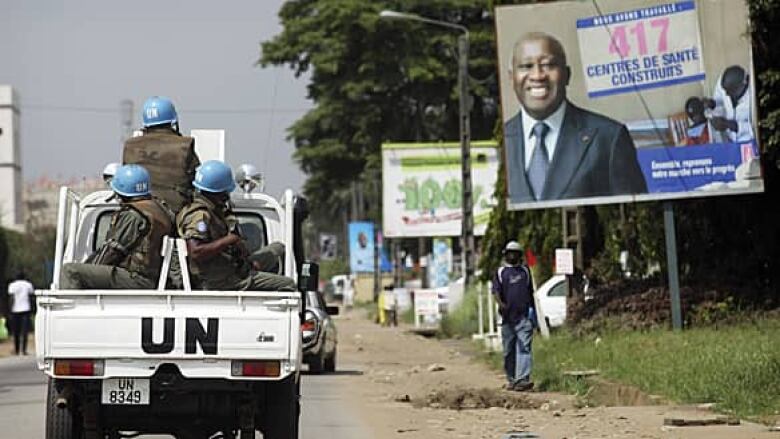UN recognizes Ouattara as Ivory Coast leader

The UN General Assembly has recognized Alassane Ouattara as the winner of the Ivory Coast's presidential election, boosting his bid to unseat Laurent Gbagbo, who has refused to step down.
The 192-nation world body adopted a resolution by consensus,accepting the credentials of Ouattara's choice for ambassador to the United Nations, veteran diplomat Youssouf Bamba.
The assembly also rescinded the credentials of Ivory Coast UN Ambassador Ilahiri Djedje, a Gbagbo supporter.
After General Assembly President Joseph Deiss banged his gavel approving the resolution, Namibia, speaking on behalf of southern African nations, and Nigeria protested that they had wanted a delay to study the resolution.
The move comes as Ivory Coast state television disappeared from the airwaves outside the main city of Abidjan.
Black and white snow appeared on the state television channel in other Ivorian cities Thursday night. State television has been a key point of conflict between the two men calling themselves president. It's also beenone of the few sources of information left for Ivorians since foreign TV and radio were blocked three weeks ago.
Gbagbo has refused to concede defeat and step down from power. He has remained in control of the military and the state media, allowing his allies to control the news seen by Ivorians.
The United Nations said Thursday that at least 173 people have died in violence over the disputed presidential election, and thatit had not even been able to investigate all the reports that have fuelled concerns about a return to civil war.
Hundreds of arrests
At a special session on Ivory Coast in Geneva, the UN deputy human rights commissioner detailed hundreds of arrests and detentions and dozens of cases of torture and mistreatment in the West African country.
"Unfortunately it has been impossible to investigate all the allegations of serious human rights violations, including reports of mass graves, due to restrictions on movement by UN personnel," Kyung-wha Kang told diplomats. "Indeed, the special representative of the Secretary-General was stopped at gunpoint as he sought to verify such allegations."
The Geneva-based UN Human Rights Council adopted a resolution late Thursday calling for an end to the violence. The resolution strongly condemned the reported abductions, detentions, acts of sexual violence and other abuses.
Kyung-wha also expressed concern about how state media was being controlled by political allies of Gbagbo, who has refused to leave the presidency despite international calls for his ouster after the Nov. 28 runoff vote.
"Particularly alarming is the use of the national Radio and Television Ivoirienne and some private newspapers to incite hatred and violence among the population and to disseminate false and inflammatory information against the United Nations," she said.
Ivory Coast was once an economic hub because of its role as the world's top cocoa producer. The 2002-2003 civil war split the country into a rebel-controlled north and a loyalist south.
While the country officially reunited in a 2007 peace deal, Ouattara still draws his support from the northern half of the country, where he was born, while Gbagbo's power base is in the south.
Gbagbo claimed victory in the presidential election only after his allies threw out half a million ballots from Ouattara strongholds in the north, a move that infuriated residents there who have long felt they are treated as foreigners in their own country by southerners.
With files from CBC News












_(720p).jpg)


 OFFICIAL HD MUSIC VIDEO.jpg)
.jpg)



























































































